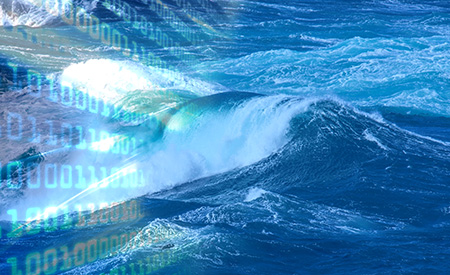Software
Type of resources
Available actions
Topics
Keywords
Contact for the resource
Provided by
Formats
status
-

This document serves as the technical manual of the alpha version of the energy capture module, including all the data requirements, main functions, interfaces and all the pertinent technical details describing the alpha version of the module for the energy capture of an array of wave energy converters or tidal energy converters.
-

This document collects the main guidelines, standards and procedures applicable to the implementation of the tools and modules in the DTOcean+ suite.
-

The present document gathers the results from the analysis of the business plan basics presented in the proposal and further describes the value-added professional services and products.
-

This document serves as the technical manual of the alpha version of the reliability, availability, maintainability and survivability module, including all the data requirements, main functions, interfaces and all the pertinent technical details.
-

This document presents the first step in achieving DTOceanPlus project website’s launching.
-

This document summarises both the functionalities as well as the more technical aspects of the code implemented for this module. This module will provide the user with four assessments: identification of the potential presence of endangered species in the area; environmental impacts estimated using relevant metrics such as the underwater noise or the collision risk between vessels/devices and the marine wildlife; estimation of the carbon footprint of the project in terms of two mid-point indicators; information to improve the social acceptance of the project considering cost of consenting and jobs creation.
-

This report describes the compilation of required data inputs for the various validation scenarios. Each scenario is characterised through a set of project data, inherent to the technology as well as meteocean conditions and other location related data. Further engagement with the validation leaders is ensuring that the data is adequately formatted for the purposes of running the DTOcean+ tools.
-

This report documents the outcome of the verification of the assessment design tools. The goal of the verification task was to ensure that the tools: respond correctly to a varied set of inputs; perform their functions in an acceptable time and reasonable use of computational resource; are adequate in terms of usability; and, are verified against control data. The following actions were completed for all tools as part of the verification and are described in detail in this report: definition of the verification cases and evaluation criteria; organisation of training sessions for partners; collection of data for each verification case; running the verification cases by partners; analysis of the results based on quantitative and qualitative assessments, creation of a task list of changes that could improve the tool and their performance.
-

The Structured Innovation (SI) design tool comprises innovation methodologies that can enhance concept creation and selection in ocean energy systems, enabling a structured approach to address complex ocean energy engineering challenges where design options are numerous. Thus, it can facilitate efficient evolution from concept to commercialisation. The tool is one of a kind beyond the current state-of-the-art, that will enable the transfer and adaptation of the QFD/TRIZ and FMEA methodologies to the ocean energy sector.
-

A coherent set of functional and technical requirements have been developed for the DTOceanPlus suite of design tools based on analysis of gaps between the current state-of-the-art tools, learning from the original DTOcean project, and the stakeholder expectations identified in the user consultation survey. The technical requirements in this document are translated from the general requirements for the overall suite of tools, and specific requirements (functional, operational, user, interfacing, and data) for the Structured Innovation design tool that has been developed as part of this project. These requirements relate to detailed technical requirements of the technology and environment, for the development, maintenance, support and execution of the software specifications to best meet the needs of the ocean energy industry.
 Catalogue PIGMA
Catalogue PIGMA